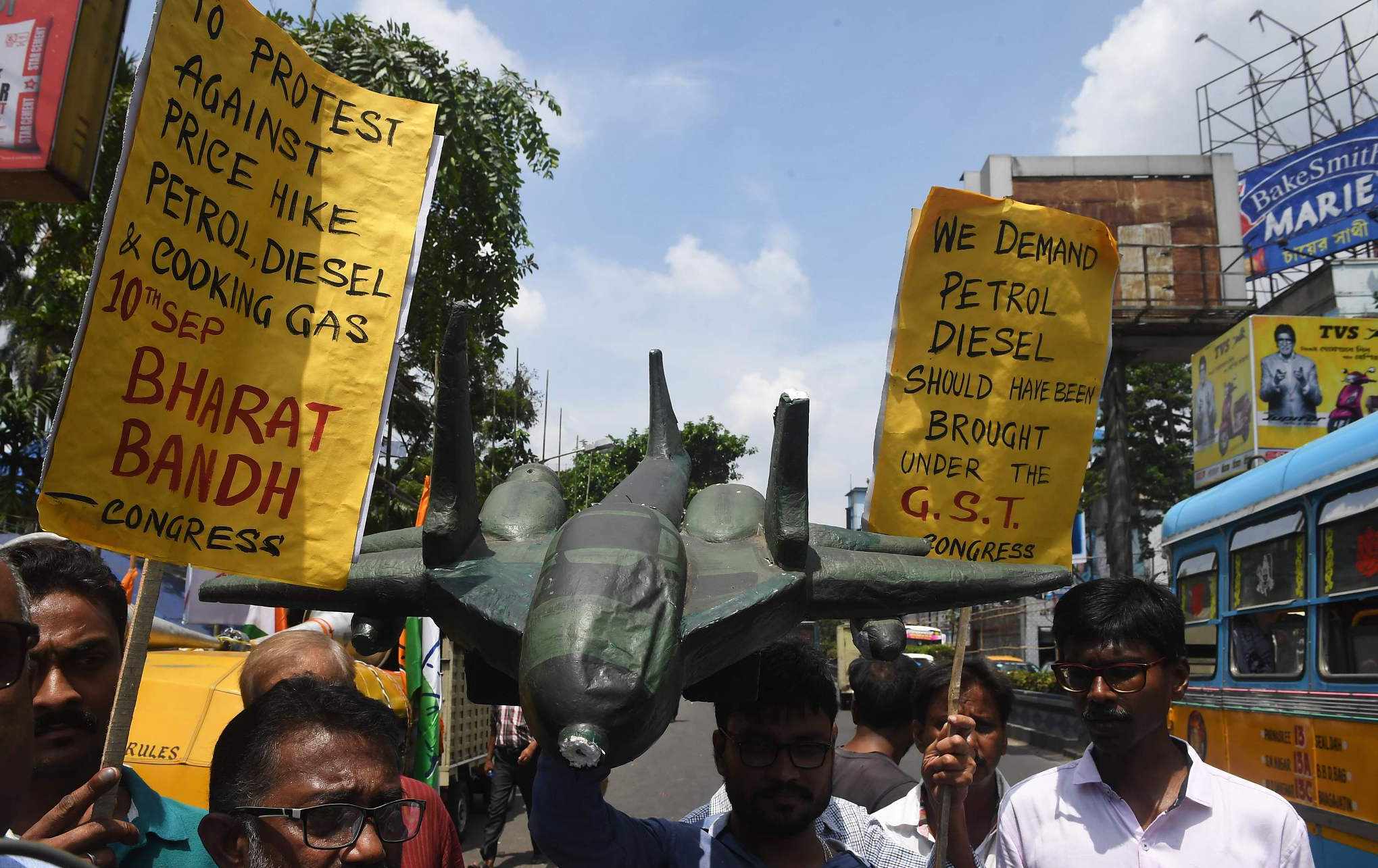French fuel protests highlight political risks of carbon taxes

French President Emmanuel Macron sought to calm angry protests on Tuesday, as ongoing tensions highlight social divisions over green policies and the link between energy and political stability.
In a speech on the country's energy policy, Macron said “we must listen to these protests of social alarm,” after 10 days of demonstrations involving hundreds of thousands of people across France which have left at least two people dead and hundreds arrested.
Macron acknowledged that his policies needed to avoid establishing a “two-speed France,” with many citizens feeling increased fuel duties were being “imposed on them from above.”
While warning that the planned tax increases on diesel would go ahead as planned, the French president said the government would review the rises every three months and account for global oil price fluctuations.
The proposed hikes, which will come into effect from January 1, have led to the “gilets jaunes” (yellow jackets) movement, a leaderless initiative that has moved on from fighting tax cuts to addressing wider social and regional imbalances.
The United Nations has advised governments to implement and increase carbon taxes, with October's report by the Intergovernmental Panel on Climate Change warning that a climate crisis could happen by 2040 if no urgent action is taken.
However, research from Columbia University's Center on Global Energy Policy published in July found that in most test scenarios of a U.S. carbon tax, the burden would be placed on lower- and middle-income households.
For French protesters, green initiatives such as bans on diesel vehicles and effective public transport are limited to Paris and other major urban areas.
In a country where unemployment continues to hover around nine percent, lower-income workers in rural areas and smaller towns rely on their vehicles for their livelihoods, and feel polluting industries should bear the brunt of Macron's war on emissions.
Wage growth has struggled to get above one percent per year in the decade since the financial crisis, while Macron's moves to ease the tax burden on the wealthy have intensified the growing sense of injustice.
Despite growing calls for carbon taxes and other green initiatives, many major countries have resisted implementing tough policies over fears of losing support and voters. The U.S. has not hiked fuel taxes since 1993, with many Republicans vocally opposed to any increases which could affect support in core lower-income areas.
In 2000, the UK saw petrol and diesel prices increase as a result of tax hikes, with the country's fuel prices going from the cheapest in Europe to the most expensive in the space of seven years.
Protests across the country led to military personnel being put on standby and hospitals warning of an impending crisis, with food supplies and financial services also affected.
Columbia University's study suggested that the best way of avoiding putting the burden of a carbon tax on lower-income populations was to provide “lump-sum rebates,” or one-off payments in exchange for complying with green policies.
France already has rebates in place, and plans to increase them in the light of the gilets jaunes movement.
Earlier this month, Prime Minister Edouard Philippe said financial aid to help pay energy bills would be extended to 5.6 million poorer households, while rebates for people who exchange older polluting vehicles for new energy vehicles will be doubled to 4,000 euros.